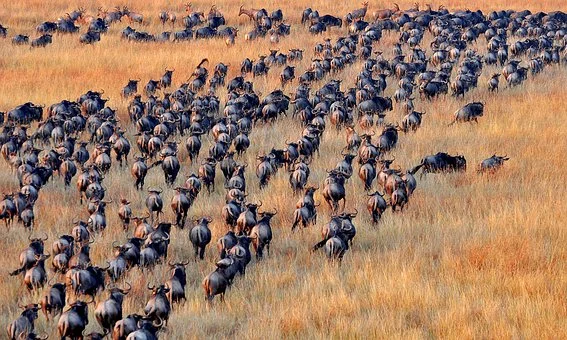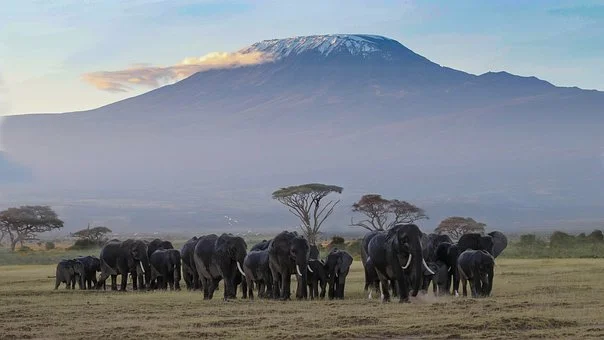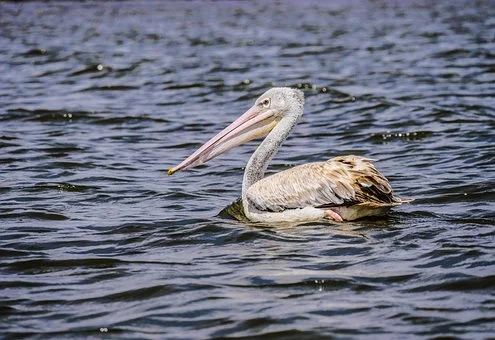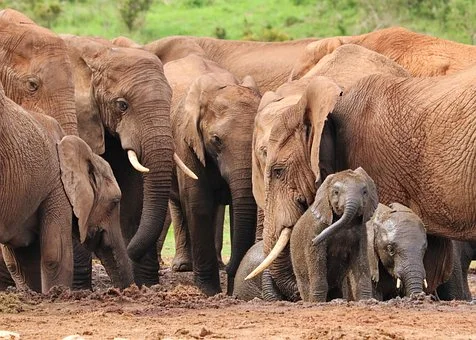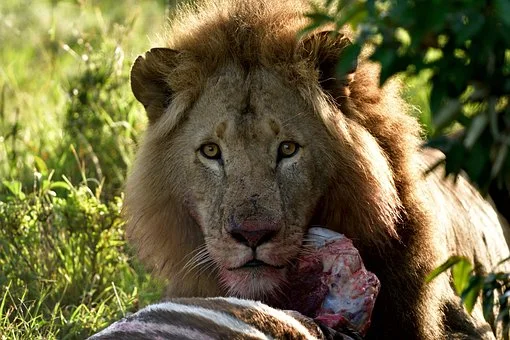An Overview of the Traditions and Culture in Kenya

At Kenya Luxury Safaris, we believe that travel experiences are enhanced by cultural understanding and that is why we’ve created this definitive guide to culture in Kenya. We hope that by educating you about Kenyan culture and traditions, you will have a richer, trouble-free experience while exploring the country. But before we dive into that…
Here’s Where to Reach us to Start Planning your Kenyan Safari
Call or WhatsApp us at +254-704-532-105 or send us an email at safarioffers@kenyasafariholidays.uk, safarioffers@ajkenyasafaris.com, or james@ajkenyasafaris.com.
And Here are a Few of Our Best Kenya Safari Packages We’re Sure You’ll Love
Table of Content
Facts and statistics
Social stratification
Etiquette
Language
Religion
Marriage, family, and kinship
The Food of Kenya
Economy
Political Life
Art and Humanities
Medicine and Healthcare
Urbanism, architecture, and the use of space
Facts and Statistics
Kenya is an East African country bordered southeast by the Indian Ocean, to the north by Ethiopia, west by Uganda, and south by Tanzania. The country is the world’s 48th largest in terms of landmass and the 30th largest in terms of population (it has a population of over 50 million people).
Its main languages are Swahili and English but due to the country’s diverse population, there are a multitude of other languages spoken including Dholuo, Kikuyu, Arabic, and Luhya.
About its climate, Kenya’s temperatures differ significantly, with the highlands being much cooler compared to the lowland and coastal regions. That said, the country’s daytime temperatures average between 20 and 28 degrees Celsius while its annual precipitation averages 680mm.
Last but not least, is the fact that the country has four major cities; Mombasa, Kisumu, Nakuru, and Nairobi which is the country’s capital city.
Fun Facts about Kenya
Kenya gained independence from the United Kingdom in 1963 and is the largest economy in East Africa.
Kenya’s national animal is a lion, its national bird a crowned crane, and its national flower the East African rose.
Kenyan tea has won international awards for its quality and taste at multiple international tea festivals.
Kenya is home to the second-highest mountain in Africa, Mount Kenya.
Mzee Jomo Kenyatta was the first Kenyan President and led the country to freedom from British colonial rule in 1963.
Social Stratification
Social stratification refers to society’s way of categorizing people based on their education, wealth, income, and family background. Kenyan society has five major social classes
the upper class aka the big boys or the bourgeoisie/ the insanely wealthy
the upper middle class aka the nobs or the above-average earners
the middle class aka the-rich-but-not-so-rich
the working class aka the average earners
and the lower class aka the povos or the unemployed
A 2016 report from the Kenya National Bureau of Statistics classified 36.1% of Kenyans as poor and the rest, 63.9%, as non-poor.
Now, sadly, in Kenya, the ethnic background has a lot to do with social stratification. To put it bluntly, the upper classes are predominantly from a few select ethnic groups while the lower class is generally comprised of the less privileged.
Case in point, the Kikuyu ethnic group which accounts for 22% of Kenya’s population but makes up more than 50% of the country’s wealthy families. On the flip side, certain ethnic groups such as the Kalenjin, Turkana, and Samburu make up just 10% of the population but account for at least a third of Kenya’s poor households.
Traditions of Kenya: Etiquette
Now here comes the hot potato- etiquette! Kenyan etiquette is quite different from that of other countries and we have all the juicy deets. Here’s everything you need to know about etiquette in Kenya.
For One, Shaking Hands/ Greetings are of Vital Importance in Kenya

In Kenya, it is important to shake hands. Entering a random shop with a shopkeeper you’ve just met? Shake hands! On a very important business meeting? Shake hands! Random old man on the streets? Remember, shaking hands is important?
And no, it’s not just any hand, your RIGHT hand- left-hand shakes are considered impolite (by some).
No Photographs, Please
We get it, you’ve never seen such beautiful people (ahem!). But, please remember that not everyone is comfortable with being photographed. Also, photographing embassies and government buildings in Kenya is illegal and could actually get you in lots of trouble!
So yes, do the modest think and ask for permission before snapping away and when it comes to official government buildings, avoid it entirely.
Gift Giving
Showed up to a Kenyan’s house/ birthday party empty-handed? Oh, how rude! You see, in Kenyan culture, the act of giving and receiving gifts is a sign of respect. The gift doesn’t have to be expensive, it could just be something as simple as fruits or a packet of sugar or milk.
Dining Etiquette
The bad news is that dining etiquette varies tremendously across different ethnicities, communities, and locations in Kenya. The good news is that you can always watch what others are doing and follow their lead.
However, there is some basic dining behavior that is accepted in most Kenyan households such as;
- always wash hands before and after a meal
- Covering your mouth when you are coughing or yawning
- Refraining from talking while your mouth is full
- serving the guest first
- and although not necessary, clearing your plate which is considered polite
Bargaining
Above all else, you are encouraged to bargain in Kenya. It is necessary, mandatory even! Plus bargaining is heavily ingrained in Kenyan culture, and even though it isn’t always the most comfortable thing to do, it will save you a lot of money in the process.
Other basic etiquette practices in Kenya include;
- Not pointing anyone with your index finger
- using the right hand or both hands to pass something- refrain from using the left hand most Kenyans consider this impolite.
- Refraining from public displays of affection
- And of course, refraining from using foul language.
Business Etiquette
- The myth of the ‘Kenyan time’? Uh-huh we’ve heard it too but it’s just that- a myth. You have to keep time when it comes to business meetings.
- Kenyans (heck, most Africans) have a standard way of dressing when it comes to business meetings and so it is important to dress officially when attending one.
- Again, say hello, and not with your left hand
- We get it, it is frustrating, but small talk is also important and a customary part of most business meetings.
- Lastly, please never make promises you know you can’t keep. A Kenyan person knows not to trust a person who cannot keep his word.
Language
Ethnologue lists Kenya as having a total of 68 spoken languages which, in truth, is a reflection of the country’s rich and diverse population. These 68 languages can be grouped into three language groups: Bantu, Nilotic, and Cushitic language groups.
65% of Kenyans speak a Bantu language, making it the most dominant language group in Kenya. Bantu languages in Kenya include Swahili, spoken by 85% of Kenyans, Kikuyu, Kamba, and Oluluhyia.
Taking second place is the Nilotic language group which accounts for 31% of the Kenyan population. The most commonly spoken Nilotic languages in the county are Dholuo and Kalenjin.
Last but not least is the Cushitic language group with 4% of the Kenyan population. Somali and Rendille are the only Cushitic languages spoken in the Kenyan nation.
The Official Languages of Kenya
English and Swahili are the official languages of Kenya. British English is widely used in the government, business, and education sectors while Swahili is most commonly spoken by Kenyans in everyday life.
There isn’t an official report of the total number of English speakers in the country, but judging from the fact that most educated Kenyans can speak the language, we estimate the figure to be around 30-60% of Kenyans.
P.S: Kenya primarily uses British English.
Other Languages in Kenya
We have;
Sheng
a mixture of English and Swahili, most commonly spoken by youths
Kenyan English
a dialect of English that has been influenced by the local languages and culture of Kenya.
Arabic
spoken mostly by Kenyan Arabs living in the North Eastern
Religion
If there’s anything Kenyans take seriously, it is their religion. In fact, Kenya is overwhelmingly religious with 82.1% of its population identifying as Christian, 11.2% as Muslim, 1.7% as Traditionalist, and 1.6% as other.
Christianity in Kenya
Christianity was introduced in Kenya by missionaries from Europe in the 19th century. Today, it is estimated that about 82% of Kenyans are Christian with 47.7% of them being Protestant and 23.4% Catholic, and 11.9% identifying as belonging to other Christian sects.
Islam in Kenya
Islam is the second most popular religion in Kenya and is practiced mostly by the Somali, Arab, Maasai, and Swahili ethnic groups. Muslim Kenyans are estimated to be around 11.9% of the population, with 7.6% identifying as Sunni, and 3.5% as Shia Muslims.
Traditional Religion
Traditional religion is still practiced by some Kenyans, especially those who live in rural areas. This form of religion revolves around the worship of ancestors and the belief that spirits inhabit the land, natural features, animals, plants, etc. To some traditionalists, for example, Mount Kenya is of tremendous religious significance. According to them, Ngai, their god, created the mountain as an earthly dwelling place from where he can inspect his other creation.
Other Religions
Apart from Christianity, Islam, and Traditional Religions, there are a few other religions practiced in Kenya. These include Hinduism, Sikhism, Buddhism, Baha’i Faith, Judaism, and Rastafarianism. These religions account for only 1.6% of the Kenyan population.
Marriage, Family, and Kinship
Did you know that in 2014, the Kenyan parliament passed a bill that permitted Kenyan men to marry more than one wife.? Here’s everything you need to know about marriage, family, and kinship in Kenya.
Marriage
The Kenyan government recognizes five types of marriages; civil, customary, Islamic, Christian, and Hindu marriages. But there’s a catch- the government will only legalize these marriages if;
- those getting married are over 18
- those getting married are of the opposite sex
- those getting married are in a position to fully understand what marriage constitutes
In other news, the average marrying age for Kenyan women is 25 while that of men is 29. However, this age is expected to rise, seeing that women especially are preferring to chase their education and career goals before tying the knot.
The Dowry System
The dowry system is a common tradition among Kenyan communities. In this practice, the groom’s family pays the bride’s family an agreed-upon sum of money or livestock as a thank-you token for raising the bride.
This custom has been largely criticized in recent years due to the fact that it puts a lot of pressure on the groom.
Family and Kinship
In Kenya, family is the basic social unit. It is the most important institution in the country and a source of pride for the majority of Kenyans. The family structure involves a man and woman living together as husband and wife, with or without children. It also usually included the extended family, that is, aunties, uncles, grandparents, and cousins.
Relationships among family members are expected to be harmonious and respectful, with the elderly being highly revered and traditional gender roles playing an important role in the overall setup.
In most cases, the eldest male member is seen as the head of the family and holds the highest authority, followed by other male members in descending order.
In terms of kinship, Kenyan families are usually extended with three or four generations living under one roof. For example, the grandparents may live with their son and his wife who in turn lives with their grandchildren under one roof.
These kinship ties are there to offer assistance to extended family members whenever possible. This includes providing financial, emotional, and moral support to one another.
Gender Roles
In Kenya, there is a clear differentiation of gender roles. Men are usually expected to be the primary breadwinners while women take up the role of taking care of the home and family.
The traditional roles for women involve managing the household, caring for children, and providing emotional support to the family. Men are expected to provide financial support and make important decisions regarding the family.
Though these traditional gender roles are still largely practiced in Kenya, changes have been observed in recent years, with more and more women taking on leadership roles and men participating actively in raising children.
The Food of Kenya
You’ve probably heard of the saying ‘African food is not a cuisine, it’s a cultural adventure’. Well, the same rings true for Kenyan food.
Kenyans love their food and take pride in their traditional dishes which is perhaps why some of the best flavors and tastes in the world are found here.

The main staple food of Kenya is ugali, githeri, and rice. Ugali is a starchy side dish made from cornmeal and hot water. It is usually accompanied by greens, meat, and avocado. Githeri, on the other hand, is a delicious mix of red beans, maize/corn, and potatoes stewed with onions and tomatoes (at least the Kenyan version of it).
And last but not least we have rice, which, in most homes, is an alternative to ugali.
Other popular Kenyan foods include Pilau (Indian rice), Nyama choma (barbequed meat), chapati (Indian flatbread), and mukimo (mashed potatoes, greens, corn, and peas).
The Kenyan Economy
With a GDP of $95 billion, the Kenyan economy is the largest in East Africa and the 88th largest in the world. In this section, we discuss the Kenyan economy and its major contributors, including tourism, agriculture, manufacturing, and services.
Let’s start with tourism! In 2021, the transport and tourism sector brought in a whopping $5.4 billion dollars to the Kenyan economy. This was 35% more than what was generated in 2020 (thanks to COVID-19!).
Agriculture was the star of the show (in 2021) with a staggering $22.8 billion contribution. Now, this is not surprising at all seeing that agriculture accounts for about 25% of the GDP and employs over 65% of the workforce in the country.
Manufacturing added $7.4 billion and has been growing steadily in recent years, largely driven by increased investment from foreign companies.
P.S: More than half of Kenya’s exports are manufactured goods, particularly textiles, clothing, and footwear.
Last but definitely not least is the service sector which is also an important driver of growth in the Kenyan economy, which accounts for about 60% of the GDP and employs more than 25% of the workforce.
Political life
Government
The national government of Kenya is made up of three arms;
- the legislature
- the judiciary
- and the executive
The legislature? Let’s get to it!

The legislature is composed of the national assembly and the senate. It comprises 290 elected members of parliament each representing the 290 constituencies in Kenya, 47 women representatives, 12 nominated members of parliament, and the speaker of the national assembly.
Next is the executive composed of the president, deputy president, attorney general, and cabinet secretaries. The main function of the executive in Kenya is to enforce the law.
Just as important, is the judiciary an independent body made up of judges of the superior courts, magistrates, and other judicial staff and officers. The Kenyan judiciary is tasked with administering justice in a fair, accountable, and timely manner. It also plays a role in the protection of human rights in Kenya.
N.B: Each of these arms is independent of the other
Foreign Relations
Kenya is an important regional partner in Eastern Africa and has diplomatic relations with most countries in the world.
The country is a member of numerous international organizations such as the United Nations, African Union, Common Market for Eastern and Southern Africa, World Bank, International Monetary Fund, and Commonwealth of Nations. It also maintains diplomatic relations with the United States, China, India, and the United Kingdom.
Additionally, Kenya has strong trading relationships all the other East African countries, and is particularly active in regional trade initiatives. It is also a major recipient of foreign investment and aid.
Art and Humanities
Kenya has a very vibrant art and culture scene that is heavily influenced by its diverse ethnic groups. Music, dance, theatre, visual arts, literature, and architecture are all expressions of the cultural diversity in the country.
Kenyan music has been influenced by traditional African styles as well as reggae, hip-hop, and other contemporary genres. Traditional dances from the various ethnic groups are performed with skill and exuberance during weddings and other ceremonies.
Theatre is a major form of entertainment in Kenya, with professional and amateur theatre companies staging productions all over the country.
Visual arts are also popular, with galleries and exhibitions showcasing some of the best artworks from talented Kenyan artists.
Kenyan literature is a testament to the wealth of talent in the country, with numerous writers producing works that are both local and international award-winning.
Architecture reflects the mix of influences in Kenyan culture, with ancient structures built in traditional African styles standing alongside modern commercial and residential buildings.
Medicine and Healthcare
Kenya has a two-tiered healthcare system, with both public and private options. The public health system is funded by the government, while private healthcare is funded by individuals, insurance companies, and other sources.
The public health system includes hospitals, clinics, dispensaries, laboratories, and other health facilities that provide care to citizens of the country. It is tasked with providing free basic services such as family planning, immunization, HIV/AIDS prevention, and other health services.
The private healthcare system, on the other hand, is largely made up of private hospitals, clinics, and laboratories that provide quality care at a cost. These facilities offer services such as specialty care, diagnostic tests, and advanced treatments.
The Medical Education System in Kenya
Kenya’s healthcare system is supported by a well-trained workforce of doctors, nurses, and other health professionals. To sufficiently equip its workforce, the government has established a rigorous medical education system, with countless universities offering degree programs in medicine, nursing, pharmacy, and other healthcare disciplines.
Urbanism, Architecture, and the Use of Space

It might surprise you, or not, but 70% of Kenya’s population lives in rural areas. This is, however, slowly changing as many Kenyans are moving to urban areas in search of job opportunities.
A good chunk of these people are moving to Nairobi. Now, we all know about Nairobi. The only city in the world with a capital city at its heart? Yes, that Nairobi!
Nairobi was created in the early 20th century as a stop on the East African Railway and it now one of the largest, most developed cities in Africa. The city (Nairobi) is diverse, has an active, fast-paced lifestyle, a great nightlife, and outstanding restaurants. That, plus the fact that it is situated near Nairobi National Park, makes it a world class safari destination.
There’s also Mombasa, the coastal city of Kenya. It’s an old port town that has been around since the 16th century and is home to some stunning white-sand beaches. The city has a unique culture and history, with its own style of Swahili language and food that can’t be found anywhere else on earth.
When it comes to architecture, Kenya’s is a mix of modern and traditional architecture. The country has some stunning examples of contemporary architecture, including malls, office buildings, skyscrapers and other structures. At the same time, there are also traditional buildings and monuments such as mosques and temples that speak to the cultural past and history of the country.

